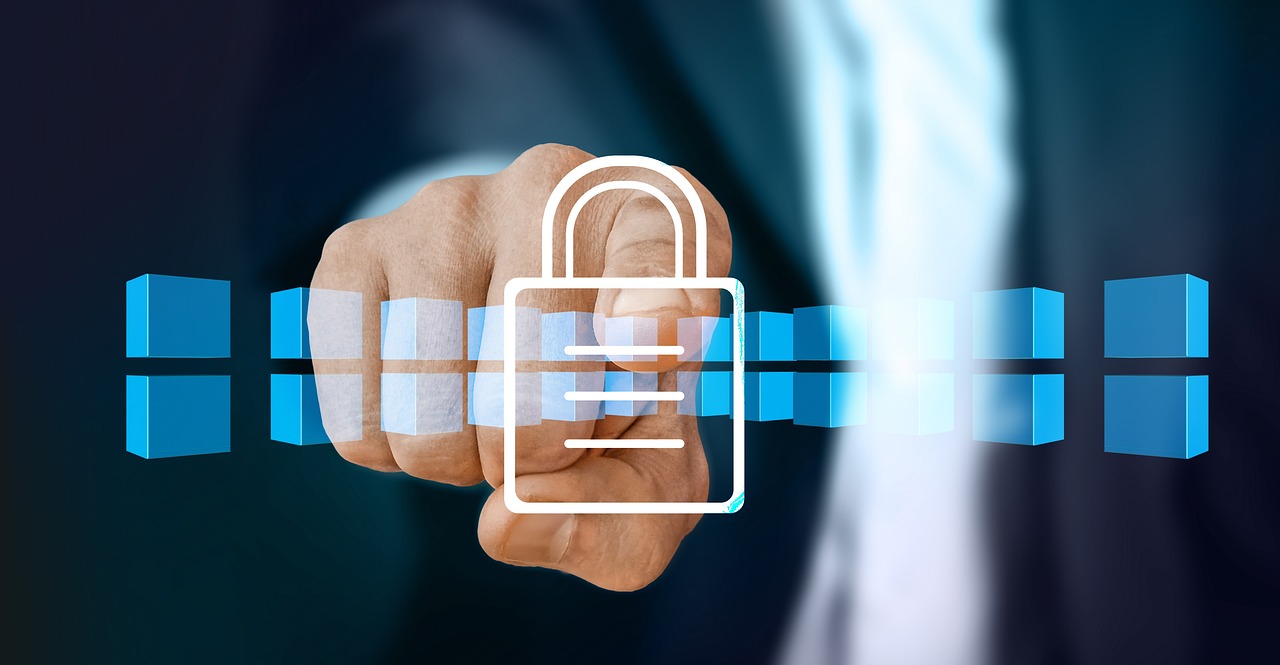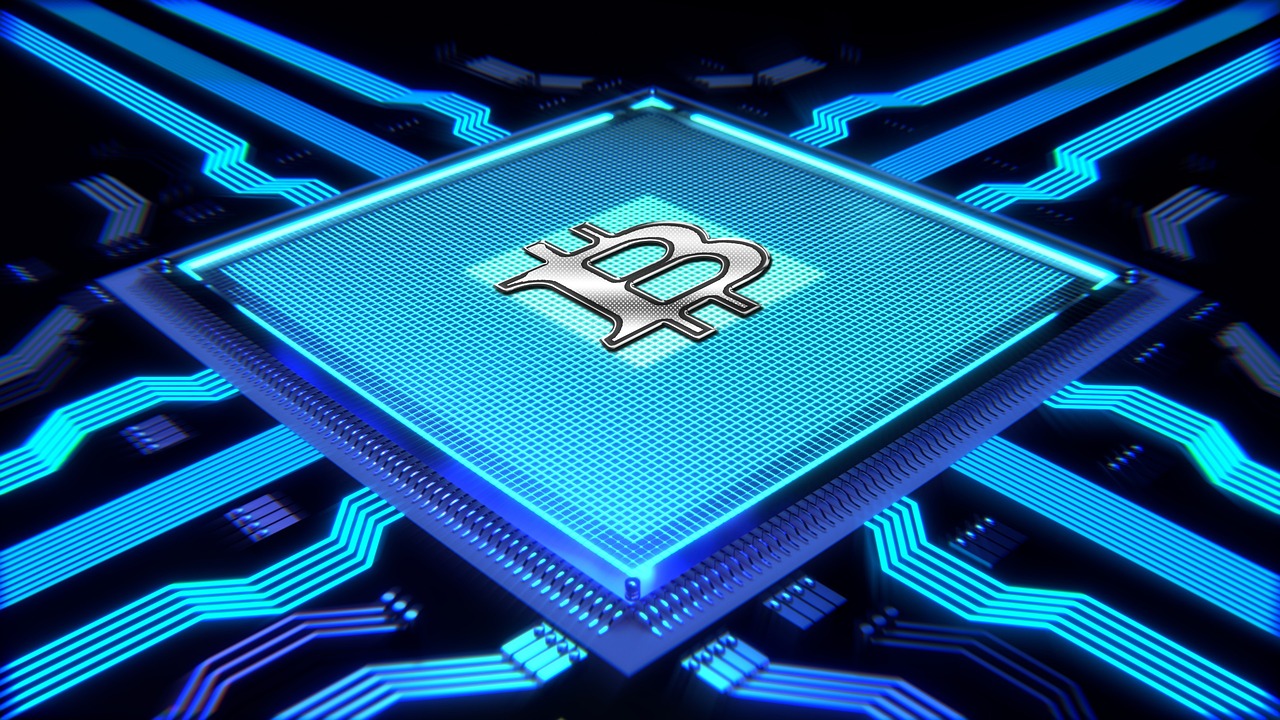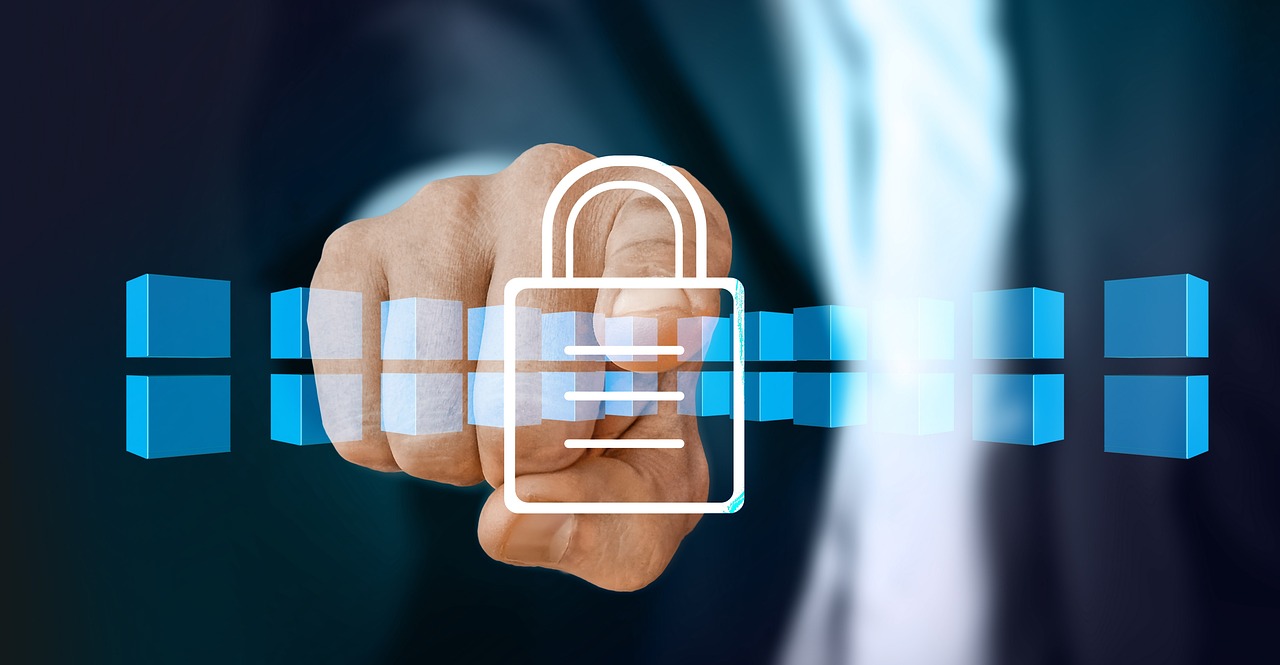How Blockchain Can Enhance Customer Loyalty Programs
In today's fast-paced digital landscape, businesses are constantly searching for innovative ways to engage and retain their customers. One of the most exciting developments in this arena is the advent of blockchain technology. Imagine a world where loyalty programs are not only secure but also transparent and efficient. Sounds intriguing, right? Well, buckle up, because blockchain is set to revolutionize how we think about customer loyalty. This article delves into the transformative potential of blockchain in loyalty programs, showcasing its myriad benefits, potential challenges, and practical applications that promise to create more secure and engaging customer experiences.
At its core, blockchain is a decentralized ledger that records transactions across multiple computers. This means that no single entity has control over the entire chain, which adds a layer of security and transparency that traditional systems simply can't match. Each transaction is encrypted and linked to the previous one, forming a chain that is nearly impossible to alter. This inherent design not only enhances security but also fosters trust among users. For customer loyalty programs, this translates to a system where customers can earn, track, and redeem rewards with confidence, knowing that their data is secure and their rewards are verifiable.
Integrating blockchain into loyalty programs offers a plethora of advantages that can significantly enhance customer engagement and satisfaction. Here are some key benefits:
- Improved Security: Blockchain's robust security measures protect customer data and transaction histories, minimizing the risk of breaches and fraud.
- Reduced Fraud: With transparent transaction records, it becomes exceedingly difficult for fraudsters to manipulate the system.
- Enhanced Customer Engagement: Customers can view their transaction history in real-time, fostering a sense of ownership and trust.
Imagine walking into your favorite coffee shop and knowing that your loyalty points are not just numbers on a screen, but securely stored records that you can access anytime. This level of transparency can lead to a more engaged customer base, as they feel more connected to the brand.
When it comes to customer data, security is paramount. Blockchain provides robust security features that protect sensitive information. Each transaction is encrypted, and the decentralized nature of the system means that there is no single point of failure. This drastically reduces the risk of data breaches and fraud, which are common concerns in traditional loyalty programs. Customers can feel confident that their personal information is safe, creating a more trusting relationship with the brand.
The decentralized nature of blockchain fosters a unique sense of trust among customers. Since transactions are verified by multiple parties rather than a central authority, customers can feel assured that their rewards are legitimate and accurately tracked. This is a game-changer in an era where trust in brands is dwindling. Customers want to know that their loyalty is recognized and rewarded fairly, and blockchain provides that assurance.
In a world where data privacy is a growing concern, blockchain empowers customers to take control of their personal information. By using blockchain technology, customers can decide what data they share and with whom. This level of control can significantly enhance customer satisfaction, as they feel more in charge of their interactions with brands. Imagine being able to share only the information necessary to earn rewards without compromising your entire data profile. That's the power of blockchain!
Blockchain can also simplify the process of earning and redeeming rewards, making transactions faster and more efficient for customers. No more waiting for points to be updated or worrying about expiration dates. With blockchain, customers can instantly see their available rewards and redeem them seamlessly. This streamlined approach not only enhances the customer experience but also encourages more frequent interactions with the brand.
Despite its many advantages, implementing blockchain in loyalty programs is not without challenges. Businesses may face several hurdles, including technical complexities, regulatory considerations, and adoption issues. Understanding these challenges is crucial for companies looking to leverage blockchain technology effectively.
The technical hurdles associated with blockchain implementation can be daunting. Businesses may need to invest in specialized knowledge and infrastructure to integrate blockchain into their existing systems. This can require significant resources and time, which may deter some companies from making the leap.
The regulatory landscape surrounding blockchain technology is still evolving. Companies must navigate a complex web of regulations that can impact the development and implementation of customer loyalty programs. Staying compliant while innovating can be a challenging balancing act for businesses.
To illustrate the practical applications of blockchain in loyalty programs, let’s look at some successful case studies of companies that have embraced this technology.
Starbucks is a prime example of a company leveraging blockchain technology to enhance its loyalty program. By integrating blockchain, Starbucks has improved customer engagement and operational efficiency. Customers can track their rewards in real-time, leading to a more satisfying experience that encourages repeat visits.
Sephora has also implemented blockchain to create a transparent and rewarding customer loyalty experience. By using blockchain, the brand showcases its commitment to innovation and customer satisfaction, allowing customers to see exactly how their rewards are earned and redeemed.
As blockchain technology continues to evolve, the future of customer loyalty programs looks promising. Businesses will likely explore new ways to integrate blockchain with other emerging technologies, such as AI and IoT, to create even more dynamic and personalized loyalty experiences. Imagine a world where your loyalty rewards are tailored to your preferences in real-time, thanks to the synergy between these technologies!
The potential for blockchain to work alongside other technologies opens up exciting possibilities. For instance, integrating blockchain with AI could allow for predictive analytics that tailor rewards based on customer behavior. This could lead to hyper-personalized experiences that keep customers coming back for more.
As consumer attitudes towards blockchain and loyalty programs evolve, businesses must stay ahead of the curve. Understanding how customers perceive these technologies will be crucial for companies looking to implement blockchain effectively. The more consumers learn about the benefits of blockchain, the more they will expect brands to adopt it.
Q: What is blockchain technology?
A: Blockchain is a decentralized digital ledger that records transactions across multiple computers, ensuring security and transparency.
Q: How does blockchain enhance customer loyalty programs?
A: Blockchain improves security, reduces fraud, and enhances customer engagement by providing transparent and verifiable transactions.
Q: What are the challenges of implementing blockchain?
A: Challenges include technical complexity, regulatory considerations, and the need for consumer education and adoption.
Q: Can blockchain work with other technologies?
A: Yes, blockchain can integrate with technologies like AI and IoT to create more personalized and dynamic loyalty experiences.

Understanding Blockchain Technology
At its core, blockchain technology is a revolutionary way of recording and sharing data securely across a network. Imagine a digital ledger that is not only transparent but also immutable, meaning once something is recorded, it can't be altered or deleted. This is the essence of blockchain—a decentralized system that allows multiple parties to access the same information without relying on a central authority. Each entry, or block, in the chain is linked to the previous one, creating a chronological record that is both secure and verifiable.
One of the key features of blockchain is its decentralization. Unlike traditional databases that are controlled by a single entity, a blockchain operates on a peer-to-peer network where every participant has a copy of the entire ledger. This decentralization fosters trust among users, as they can independently verify transactions without needing to trust a third party. For customer loyalty programs, this means that customers can feel secure knowing their data is not stored in a single vulnerable location.
Another important aspect of blockchain is its transparency. Every transaction that occurs on the blockchain is visible to all participants in the network. This level of transparency can significantly enhance customer loyalty programs by allowing customers to track their rewards and transactions in real-time. No more hidden fees or unclear terms—customers can see exactly how their loyalty points are accrued and redeemed. This visibility not only boosts customer confidence but also encourages greater engagement.
To illustrate how blockchain operates, let's break down its key components:
| Component | Description |
|---|---|
| Block | A collection of data or transactions that are recorded together. |
| Chain | A sequence of blocks linked together, ensuring each block is connected to the one before it. |
| Node | Each participant in the network that maintains a copy of the blockchain. |
| Consensus Mechanism | The protocol used to achieve agreement on a single data value among distributed processes or systems. |
Moreover, blockchain uses cryptographic techniques to secure data. Each transaction is encrypted, and a unique hash is generated, which acts like a digital fingerprint. This means that any attempt to alter a block will change its hash, alerting the network to potential fraud. Thus, blockchain not only enhances security but also significantly reduces the risk of breaches and fraud in loyalty programs.
In conclusion, understanding blockchain technology is crucial for businesses looking to enhance their customer loyalty programs. By leveraging its decentralized, transparent, and secure nature, companies can create more engaging and trustworthy experiences for their customers. As we delve deeper into the benefits of blockchain in loyalty programs, it's essential to recognize how this technology can transform the way businesses interact with their customers.

Benefits of Blockchain in Loyalty Programs
When it comes to customer loyalty programs, businesses are always on the lookout for ways to make these initiatives more enticing and secure. Enter blockchain technology—a game changer that can redefine how loyalty programs operate. Imagine a world where your loyalty points are not only safe but also easily transferable and redeemable. With blockchain, this is not just a dream; it's becoming a reality. The integration of blockchain into loyalty programs brings a plethora of benefits that can enhance customer experience and engagement.
One of the most significant advantages is improved security. Traditional loyalty programs often store customer data in centralized databases, making them vulnerable to breaches. However, blockchain operates on a decentralized ledger system, meaning that data is not stored in a single location. This decentralization significantly reduces the risk of hacking and fraud, ensuring that customer information remains protected. With every transaction recorded on a secure blockchain, customers can trust that their data is safe from prying eyes.
Another noteworthy benefit is the reduction of fraud. In conventional loyalty programs, customers can sometimes exploit loopholes, such as creating fake accounts to earn points. Blockchain technology mitigates this risk by providing a transparent and immutable record of all transactions. Each point earned or redeemed is logged in a way that cannot be altered, making it nearly impossible for fraudsters to manipulate the system. This transparency not only protects businesses but also builds trust with customers, reinforcing their loyalty.
Furthermore, blockchain enhances customer engagement. Imagine being able to exchange loyalty points with friends or even use them across different brands without any hassle. Blockchain makes this possible by allowing for the creation of interoperable loyalty programs. Customers can earn points from one business and redeem them at another, creating a seamless experience that keeps them coming back for more. This flexibility can lead to increased customer satisfaction and loyalty, as consumers appreciate the freedom to use their rewards in ways that suit them.
Moreover, blockchain empowers customers with data privacy and control. In an era where data breaches are rampant, customers are more concerned than ever about how their personal information is used. With blockchain, customers have the ability to control their data. They can decide what information to share and with whom, thus enhancing their trust in the loyalty program. This level of control can lead to a more engaged customer base, as individuals feel more secure in their interactions with brands.
Lastly, let’s talk about streamlined reward redemption. Traditional loyalty programs can sometimes be cumbersome, with complicated rules and processes for redeeming rewards. Blockchain simplifies this by automating transactions and making the process faster and more efficient. Customers can easily see their points balance, understand how to earn more, and redeem rewards with just a few clicks. This ease of use can significantly enhance the overall customer experience, making them more likely to participate actively in the program.
In summary, the integration of blockchain technology into loyalty programs is not just a trend; it’s a revolution. By improving security, reducing fraud, enhancing customer engagement, empowering data privacy, and streamlining reward redemption, blockchain creates a win-win situation for both businesses and customers. The future of loyalty programs looks bright, and blockchain is at the forefront of this transformation.

Enhanced Security Measures
When it comes to customer loyalty programs, one of the biggest concerns for businesses and consumers alike is security. With the rise of data breaches and fraud, ensuring that sensitive information is protected is paramount. This is where blockchain technology steps in as a game-changer. By utilizing its decentralized nature, blockchain provides a level of security that traditional systems simply cannot match.
At its core, blockchain operates as a distributed ledger that records transactions across many computers. This means that no single entity has control over the entire database, making it incredibly difficult for hackers to manipulate the data. Each transaction is encrypted and linked to the previous one, creating a secure chain of information that is virtually tamper-proof. Imagine a vault with multiple locks, where each lock requires a different key; that’s how blockchain secures your data!
Moreover, the transparency inherent in blockchain technology fosters trust. Customers can easily verify their transactions without needing to rely on a central authority. This is a breath of fresh air in an age where many people feel skeptical about how their data is handled. With blockchain, customers can see exactly how their loyalty points are earned and redeemed, enhancing their overall experience.
In addition to these features, blockchain also empowers customers with data privacy and control. In traditional loyalty programs, companies often collect vast amounts of personal information, which can lead to privacy concerns. Blockchain allows customers to manage their own data securely, giving them the ability to share only what they want, when they want. This not only protects their information but also builds a stronger relationship between the business and the customer.
To illustrate the impact of enhanced security measures, consider the following table that outlines some key benefits of blockchain in loyalty programs:
| Feature | Benefit |
|---|---|
| Decentralization | Reduces the risk of data manipulation and fraud. |
| Encryption | Protects sensitive customer data from unauthorized access. |
| Transparency | Allows customers to verify transactions, enhancing trust. |
| Data Control | Empowers customers to manage their own information. |
In conclusion, the enhanced security measures provided by blockchain technology not only protect customer data but also create a more engaging and trustworthy loyalty program. As consumers become more aware of their data rights, businesses that adopt blockchain are likely to gain a competitive edge in the market. After all, who wouldn’t want to participate in a program that puts their security and privacy first?

Decentralization and Trust
When we talk about decentralization in the context of blockchain, we're diving into a world where trust is not just a word but a fundamental principle. Imagine a system where no single entity holds all the power, where every participant has a say, and where transparency reigns supreme. This is the magic of blockchain technology. It operates on a network of computers, or nodes, that work together to validate transactions. Each transaction is recorded in blocks, which are then linked together in a secure chain. This structure creates an environment where trust is built not on faith in a central authority but on the collective verification of all participants.
In traditional customer loyalty programs, trust often hinges on the reputation of the company managing the program. Customers must believe that their data is secure and that the rewards they earn will be honored. However, with blockchain, customers can verify transactions themselves. Each transaction is immutable and publicly accessible, meaning that once it's recorded, it cannot be altered or deleted. This level of transparency fosters a sense of security, as customers can independently confirm that their loyalty points are accurately tracked and that their personal information is safeguarded.
Furthermore, the decentralized nature of blockchain diminishes the risk of fraud. In a centralized system, if a hacker gains access to the database, they can manipulate data, siphoning off rewards or altering point balances. But in a decentralized network, altering the information would require overwhelming consensus from the majority of nodes, which is virtually impossible. This inherent security feature builds trust among customers, as they know their loyalty points are safe from tampering.
Moreover, decentralization empowers customers by giving them more control over their data. In a traditional setup, companies often dictate how customer data is used, which can lead to concerns about privacy and misuse. With blockchain, customers can choose what information they share and with whom, ensuring that they have the final say over their personal data. This shift not only enhances trust but also strengthens the relationship between the customer and the brand.
In summary, the decentralization offered by blockchain technology transforms the landscape of customer loyalty programs. It builds a framework of trust that is not only transparent and secure but also empowering for the customer. As businesses look to enhance their loyalty offerings, embracing this technology could be the key to fostering deeper connections with their customers.
- What is blockchain technology? Blockchain is a decentralized digital ledger that records transactions across multiple computers securely and transparently.
- How does decentralization enhance trust in loyalty programs? Decentralization allows customers to verify their transactions independently, reducing reliance on a single authority and enhancing security.
- Can blockchain prevent fraud in loyalty programs? Yes, the decentralized nature of blockchain makes it exceedingly difficult for fraud to occur, as altering records requires consensus from the majority of nodes.
- How does blockchain give customers control over their data? Blockchain allows customers to choose what information they share, ensuring that they maintain control over their personal data.

Data Privacy and Control
In today's digital age, where data breaches and privacy concerns are rampant, data privacy has become a paramount issue for consumers. Imagine walking into a store and knowing that every purchase you make is tracked, analyzed, and potentially sold to the highest bidder without your consent. This unsettling reality is what many customers face in traditional loyalty programs. However, blockchain technology is turning the tables and giving power back to the consumers.
With its decentralized nature, blockchain offers a revolutionary way to handle personal data. Each transaction is recorded on a public ledger that is immutable and transparent, allowing customers to see exactly how their information is being used. This level of transparency not only builds trust but also empowers customers to control their data. Instead of having their information stored in a central database where it can be vulnerable to hacks, customers can choose what data they share and with whom.
Moreover, blockchain enhances data privacy by allowing customers to engage in loyalty programs without the fear of their data being misused. For instance, when a customer earns points or rewards, they can do so without providing excessive personal information. This is achieved through the use of cryptographic techniques that secure data while still allowing for the necessary interactions within the loyalty program. In essence, customers can enjoy the benefits of loyalty programs while maintaining control over their personal information.
To illustrate how blockchain can enhance data privacy, consider the following:
| Feature | Traditional Loyalty Programs | Blockchain-Based Programs |
|---|---|---|
| Data Storage | Centralized databases prone to breaches | Decentralized ledger ensuring security |
| Data Access | Limited customer control | Customer has full control over shared data |
| Transparency | Opaque data usage | Clear visibility into data use |
| Fraud Risk | High risk due to centralized control | Reduced risk through decentralized verification |
As we can see, the comparison highlights a significant shift in how customer data is managed. By leveraging blockchain, companies can foster a more trustworthy relationship with their customers, ultimately leading to better engagement and loyalty. In this new paradigm, customers are not just passive participants; they are active players in the loyalty ecosystem, making informed decisions about their data.
In conclusion, the integration of blockchain technology into customer loyalty programs not only enhances data privacy but also empowers customers to take control of their personal information. As businesses begin to recognize the importance of data privacy, they will likely adopt blockchain solutions to create a more secure and engaging experience for their customers.
- What is blockchain technology? Blockchain is a decentralized digital ledger that records transactions across many computers securely and transparently.
- How does blockchain enhance data privacy? It allows customers to control their data by providing transparency on how their information is used and stored.
- Can blockchain reduce fraud in loyalty programs? Yes, the decentralized nature of blockchain makes it harder for fraud to occur by verifying transactions through multiple parties.
- What are the challenges of implementing blockchain? Technical complexity, regulatory considerations, and the need for consumer education are some of the challenges businesses face.

Streamlined Reward Redemption
Imagine walking into your favorite store, excited to redeem your hard-earned loyalty points. You approach the checkout, and instead of fumbling through your phone or wallet, you effortlessly complete the transaction in seconds. This is the magic of blockchain technology when applied to customer loyalty programs. By leveraging blockchain, businesses can create a system where reward redemption is not only faster but also more efficient and user-friendly.
The traditional methods of managing loyalty rewards often involve complex systems that can frustrate customers. Often, users have to deal with confusing terms and conditions, expiration dates, and varying redemption processes across different stores. With blockchain, all these challenges can be addressed. The decentralized nature of blockchain allows for real-time updates and transparency, meaning customers can view their points and rewards instantly without the worry of discrepancies.
Moreover, blockchain can automate the redemption process through smart contracts. These self-executing contracts automatically enforce the terms of the agreement once the conditions are met. For example, if a customer has accumulated enough points for a reward, the smart contract can trigger the redemption process, instantly applying the discount or providing the reward without any manual intervention. This not only saves time but also enhances the overall customer experience.
To illustrate the impact of streamlined reward redemption through blockchain, consider the following table that compares traditional loyalty programs with blockchain-integrated programs:
| Feature | Traditional Loyalty Programs | Blockchain-Integrated Programs |
|---|---|---|
| Redemption Speed | Slow, often requiring manual processing | Instant, thanks to automation |
| Transparency | Limited visibility into points and rewards | Real-time visibility of points and transactions |
| Security | Vulnerable to fraud and data breaches | Highly secure with encrypted transactions |
| User Control | Limited control over personal data | Full control over personal information |
In addition to these benefits, customers are more likely to engage with loyalty programs that offer seamless experiences. When the redemption process is straightforward, it encourages customers to participate actively, leading to increased brand loyalty. Imagine how rewarding it feels to click a button and instantly receive a discount or gift card. This immediate gratification is something that blockchain can provide, making it a win-win for both businesses and customers.
In conclusion, the integration of blockchain technology into loyalty programs transforms the way customers earn and redeem rewards. By simplifying the process, enhancing security, and providing transparency, businesses can create an engaging experience that keeps customers coming back for more. The future of loyalty programs is not just about accumulating points; it's about creating a seamless journey that rewards customers in real-time.

Challenges of Implementing Blockchain
While the potential of blockchain technology in enhancing customer loyalty programs is immense, it doesn't come without its own set of challenges. Businesses looking to integrate blockchain must navigate a complex landscape filled with technical, regulatory, and adoption hurdles. These challenges can often seem daunting, but understanding them is the first step toward overcoming them.
One of the primary challenges is technical complexity. Implementing blockchain requires a certain level of expertise that many organizations may not possess. The technology itself is intricate, involving cryptographic principles and decentralized networks that can be difficult to manage. Companies may need to invest in specialized training or hire experts to build and maintain their blockchain systems. This can lead to significant costs and resource allocation issues, especially for smaller businesses.
Additionally, the regulatory landscape surrounding blockchain technology is still evolving. Different regions and countries have varying regulations regarding data privacy, cryptocurrency, and digital transactions. For businesses, this means they must remain vigilant and adaptable to comply with local laws while also ensuring that they are not compromising their customers' data security. The uncertainty in regulations can also deter companies from fully committing to blockchain solutions, fearing potential legal repercussions.
Moreover, there is the challenge of consumer adoption. While blockchain offers impressive benefits, many customers may not be familiar with how it works or the advantages it presents. This lack of understanding can lead to skepticism and reluctance to engage with blockchain-based loyalty programs. Businesses must invest in educational initiatives to inform their customers about the technology, its benefits, and how it will enhance their loyalty experience. This can involve marketing campaigns, workshops, or interactive content that demystifies blockchain.
In summary, while the integration of blockchain into customer loyalty programs presents exciting opportunities, it also brings forth several challenges that must be addressed. Companies need to invest in technical expertise, navigate a complex regulatory environment, and foster consumer trust and understanding. By tackling these obstacles head-on, businesses can create a more secure, efficient, and engaging loyalty program that leverages the power of blockchain technology.
- What is blockchain technology? Blockchain is a decentralized ledger technology that allows for secure and transparent transactions without the need for a central authority.
- How can blockchain improve customer loyalty programs? Blockchain enhances security, reduces fraud, and increases customer engagement by providing transparent and efficient transactions.
- What are the main challenges of implementing blockchain? The main challenges include technical complexity, regulatory considerations, and consumer adoption issues.
- Is blockchain technology secure? Yes, blockchain technology is considered secure due to its decentralized nature and cryptographic features, which protect data from unauthorized access.

Technical Complexity
When it comes to implementing blockchain in customer loyalty programs, one of the most significant hurdles businesses face is the associated with this innovative technology. Blockchain isn't just a buzzword; it represents a paradigm shift in how data is handled, stored, and shared. This complexity can be daunting, especially for companies that are still navigating traditional systems. Imagine trying to teach an old dog new tricks—it's not always easy, right?
To effectively integrate blockchain, organizations need to consider several key factors that contribute to this technical complexity:
- Specialized Knowledge: Understanding blockchain technology requires a dedicated team with specialized skills. This includes knowledge of cryptography, distributed systems, and smart contracts. For many businesses, this means investing in training or hiring new talent, which can be both time-consuming and costly.
- Infrastructure Requirements: Implementing blockchain often necessitates a complete overhaul of existing IT infrastructure. Companies may need to upgrade their hardware and software to support decentralized applications (dApps) and ensure seamless integration with current systems.
- Interoperability Issues: Different blockchain platforms may not be compatible with one another. This lack of standardization can create challenges when trying to connect various loyalty programs or when collaborating with partners who use different systems.
Moreover, the ongoing evolution of blockchain technology means that what is cutting-edge today may become obsolete tomorrow. This rapid pace of change can make it difficult for businesses to keep up, leading to a constant game of catch-up. Companies must be prepared to adapt their strategies and technologies as new developments arise, which can be a daunting task.
In summary, while the potential benefits of blockchain for customer loyalty programs are immense, the technical complexity involved in its implementation cannot be overlooked. Businesses must be willing to invest the necessary resources and effort to tackle these challenges head-on. After all, in the world of technology, those who adapt and evolve are the ones who thrive.

Regulatory Considerations
When it comes to integrating blockchain technology into customer loyalty programs, businesses must navigate a complex landscape of . The legal framework surrounding blockchain is still evolving, and this can pose significant challenges for companies eager to leverage the benefits of decentralization and transparency. Understanding these regulations is crucial, as non-compliance can lead to hefty fines and damage to a brand's reputation.
First and foremost, businesses need to consider the data protection laws that govern customer information. Regulations such as the General Data Protection Regulation (GDPR) in Europe impose strict guidelines on how personal data is collected, stored, and processed. Since blockchain operates on a decentralized model, ensuring compliance with these regulations can be tricky. For instance, the immutable nature of blockchain means that once data is recorded, it cannot be altered or deleted. This raises questions about how businesses can comply with the right to be forgotten, a key tenet of GDPR.
Additionally, companies must also be aware of the financial regulations that may apply to their loyalty programs. Depending on how rewards are structured—especially if they resemble cryptocurrencies—businesses might need to comply with anti-money laundering (AML) and know your customer (KYC) regulations. This can involve additional administrative burdens and require the implementation of robust identity verification processes.
Moreover, the regulatory environment can vary significantly by region. In the United States, for example, the approach to blockchain regulation is fragmented across different states. Some states have embraced blockchain technology, creating favorable conditions for businesses, while others have imposed strict regulations that can hinder innovation. This inconsistency can create uncertainty for companies looking to implement blockchain solutions, as they must stay informed about the regulations in every jurisdiction where they operate.
In light of these challenges, it is essential for businesses to engage with legal experts who specialize in blockchain technology. This can help ensure that their loyalty programs are designed with compliance in mind from the outset. By taking a proactive approach to understanding regulatory considerations, companies can not only mitigate risks but also position themselves as leaders in the adoption of blockchain-enhanced loyalty programs.
Ultimately, while the regulatory landscape surrounding blockchain can be daunting, it also presents an opportunity for businesses to innovate responsibly. By navigating these challenges effectively, companies can create loyalty programs that are not only secure and transparent but also compliant with the necessary legal frameworks, paving the way for a more trustworthy relationship with their customers.
- What are the main regulatory challenges of implementing blockchain in loyalty programs?
The main challenges include compliance with data protection laws like GDPR, financial regulations such as AML and KYC, and navigating the varying regulations across different jurisdictions.
- How can businesses ensure compliance with data protection laws when using blockchain?
Businesses should consult legal experts and design their blockchain systems to allow for compliance with regulations, such as implementing mechanisms for data deletion where required.
- Are there specific regions that are more favorable for blockchain implementation?
Yes, some states and countries have adopted more favorable regulations for blockchain technology, while others may impose stricter rules. It's important for businesses to research the regulations in their operating regions.

Real-World Examples
When it comes to the practical applications of blockchain technology in customer loyalty programs, several leading brands have taken the plunge, reaping significant benefits. These real-world examples not only illustrate the transformative power of blockchain but also showcase how businesses can innovate their customer engagement strategies. Let’s dive into two prominent case studies: Starbucks and Sephora.
Starbucks has been at the forefront of integrating blockchain technology into its loyalty program. By utilizing blockchain, the coffee giant has enhanced transparency in its supply chain, allowing customers to trace the origin of their coffee beans. This transparency fosters a deeper connection between the brand and its customers, as they can see exactly where their coffee comes from. Moreover, Starbucks is exploring the use of blockchain to streamline its rewards system, ensuring that customers can earn and redeem points seamlessly. Imagine walking into your favorite Starbucks, making your purchase, and instantly seeing your loyalty points reflected in your app, all thanks to the efficiency of blockchain!
Sephora has also embraced blockchain technology to revolutionize its loyalty program. The beauty retailer has implemented a blockchain-based system that allows customers to track their purchases and rewards in a transparent manner. This not only enhances customer trust but also encourages engagement, as customers can see how close they are to earning their next reward. Sephora's commitment to innovation is evident in its efforts to create personalized experiences for its customers, leveraging blockchain to provide tailored recommendations based on purchase history. The result? A more engaged customer base that feels valued and understood.
Both of these examples highlight the potential of blockchain to not only enhance customer loyalty programs but also to foster a sense of community and trust between brands and their customers. As more companies begin to explore the possibilities of this technology, we can expect to see even more innovative approaches to customer loyalty.
Q1: What is blockchain technology?
A1: Blockchain technology is a decentralized digital ledger that records transactions across multiple computers. This ensures that the recorded transactions are secure, transparent, and tamper-proof.
Q2: How does blockchain enhance customer loyalty programs?
A2: Blockchain enhances customer loyalty programs by providing improved security, transparency, and efficiency in transactions. It allows customers to have greater control over their data and rewards, fostering trust and engagement.
Q3: What are some challenges of implementing blockchain in loyalty programs?
A3: Some challenges include technical complexity, the need for specialized knowledge, regulatory considerations, and potential resistance from consumers who may not fully understand the technology.
Q4: Are there any other companies using blockchain for loyalty programs?
A4: Yes, many companies are exploring blockchain for loyalty programs, including airlines, hotels, and retail brands. Each is finding unique ways to leverage the technology to improve customer experiences.

Case Study: Starbucks
Starbucks, a global coffeehouse chain, has been at the forefront of integrating innovative technologies into its business model. In a bid to enhance its customer loyalty program, Starbucks turned to blockchain technology, recognizing its potential to revolutionize the way customers engage with their rewards system. By leveraging blockchain, Starbucks aims to create a more transparent, secure, and rewarding experience for its loyal customers.
One of the standout features of Starbucks' blockchain implementation is its focus on transparency. Customers can now trace the origin of their coffee beans, understanding the journey from farm to cup. This not only builds trust but also fosters a deeper connection between the brand and its consumers. Imagine sipping your favorite latte while knowing exactly where the beans came from and how they were sourced! This level of transparency is a game changer in the loyalty program landscape.
Moreover, Starbucks has utilized blockchain to streamline its loyalty program processes. The integration allows for real-time tracking of rewards, making it easier for customers to earn and redeem points. No more waiting for points to update or dealing with complicated redemption processes. With blockchain, the transactions are recorded on a decentralized ledger, ensuring they are secure and immutable. This means that customers can trust that their rewards are accurately reflected in their accounts, enhancing their overall experience.
Starbucks' approach also emphasizes the importance of data privacy. By using blockchain, customers have greater control over their personal information. They can choose what data to share and with whom, empowering them in a world where data breaches are all too common. This commitment to privacy not only builds trust but also aligns with the growing consumer demand for data protection.
In addition to these benefits, Starbucks has seen a significant increase in customer engagement since implementing blockchain technology. The company's loyalty program has become more interactive, with customers actively participating in the process. For instance, they can receive personalized offers based on their purchasing history, which are now more accurately tracked thanks to blockchain's capabilities.
In summary, Starbucks' foray into blockchain technology exemplifies how a brand can harness this innovative solution to enhance its customer loyalty program. By focusing on transparency, security, and customer empowerment, Starbucks not only improves the customer experience but also sets a benchmark for other companies looking to innovate in this space. The success of this initiative showcases the transformative potential of blockchain in creating engaging and secure loyalty programs.
- What is blockchain technology?
Blockchain is a decentralized digital ledger that records transactions across many computers so that the recorded transactions cannot be altered retroactively.
- How does Starbucks use blockchain?
Starbucks uses blockchain technology to enhance transparency in its supply chain and improve its customer loyalty program by providing real-time tracking of rewards.
- What are the benefits of blockchain in loyalty programs?
Benefits include enhanced security, reduced fraud, improved customer engagement, and greater control over personal data.
- Are there challenges in implementing blockchain?
Yes, challenges include technical complexity, regulatory considerations, and the need for consumer education.

Case Study: Sephora
Sephora, a global leader in the beauty retail industry, has taken significant strides in revolutionizing its customer loyalty program by integrating blockchain technology. This innovative approach not only enhances customer engagement but also ensures a transparent and rewarding experience for its users. Imagine walking into a store where your purchases and rewards are seamlessly tracked, and you have complete control over your data—that's the Sephora experience with blockchain.
By utilizing blockchain, Sephora has created a system that allows customers to earn and redeem loyalty points with unprecedented ease. The technology enables a secure and immutable record of transactions, which means that customers can trust that their loyalty points are accurately tracked and not subject to fraud. This level of transparency fosters a deeper sense of trust between Sephora and its customers, as they know their data is protected and their rewards are genuine.
Additionally, Sephora’s blockchain implementation allows for a more personalized shopping experience. Customers can receive tailored promotions and rewards based on their shopping habits, all while having the peace of mind that their personal information is secure. The beauty giant has also introduced a feature where customers can track the origin of their purchased products, ensuring that they are making informed choices about the items they buy. This feature not only enhances customer loyalty but also aligns with the growing consumer demand for transparency in product sourcing.
Furthermore, Sephora has leveraged blockchain to facilitate collaborations with other brands and partners. Through a shared loyalty ecosystem, customers can earn points not just from Sephora but also from affiliated brands, creating a more holistic and rewarding shopping experience. This interconnectedness not only boosts customer satisfaction but also encourages brand loyalty across multiple platforms.
To illustrate the impact of this blockchain integration, let’s take a look at some key benefits that Sephora has experienced:
| Benefit | Description |
|---|---|
| Increased Trust | Customers can verify the authenticity of their rewards and transactions. |
| Enhanced Personalization | Tailored promotions based on individual shopping behaviors. |
| Improved Engagement | Seamless earning and redemption processes keep customers coming back. |
| Transparency in Product Sourcing | Customers can trace the origins of their beauty products. |
In summary, Sephora's innovative use of blockchain technology in its loyalty program is a prime example of how businesses can harness this powerful tool to create more engaging and trustworthy customer experiences. By prioritizing transparency and security, Sephora not only enhances customer loyalty but also sets a benchmark for other brands in the retail industry to follow. As the landscape of customer loyalty continues to evolve, Sephora’s approach may very well be the blueprint for future advancements in this space.
- What is blockchain technology? Blockchain is a decentralized digital ledger that records transactions across many computers securely, ensuring that the information cannot be altered retroactively.
- How does blockchain enhance customer loyalty programs? By providing transparency, security, and control over personal data, blockchain fosters trust and allows for personalized rewards.
- What are the challenges of implementing blockchain in loyalty programs? Businesses may face technical complexities, regulatory hurdles, and the need for consumer education when adopting blockchain technology.
- Can other brands learn from Sephora’s approach? Absolutely! Sephora's success with blockchain highlights the potential for increased customer engagement and trust, serving as a model for other businesses.

The Future of Customer Loyalty Programs
As we gaze into the crystal ball of customer loyalty programs, it's clear that the integration of blockchain technology will be a game-changer. Imagine a world where your loyalty points are not just numbers on a screen but are backed by a secure, transparent system that you can trust. This future is not far off, and it promises to revolutionize the way businesses interact with their customers.
One of the most exciting prospects is the integration of blockchain with other emerging technologies. Picture this: blockchain working hand-in-hand with Artificial Intelligence (AI) and the Internet of Things (IoT) to create a personalized loyalty experience that feels tailor-made just for you. For instance, AI could analyze your purchasing habits and preferences, while IoT devices could track your interactions with various brands. Together, they could create a seamless experience where your loyalty rewards are presented to you in real-time, enhancing your shopping experience significantly.
Moreover, as consumers become more aware and educated about blockchain technology, their attitudes towards loyalty programs will evolve. The transparency and security that blockchain offers will likely lead to increased trust in these programs. Customers are becoming more savvy; they want to know how their data is being used and how their loyalty is rewarded. The future will see brands that prioritize data privacy and customer control gaining a competitive edge. In fact, a recent survey indicated that over 70% of consumers are more likely to engage with brands that offer transparent data practices.
As we move forward, businesses will need to adapt to these changing consumer expectations. The loyalty programs of tomorrow will not just reward purchases; they will foster a relationship built on trust and transparency. This might include offering customers the ability to choose how their data is used or allowing them to trade loyalty points with other users. The flexibility and adaptability of blockchain can facilitate these innovations, making loyalty programs more engaging and rewarding.
In conclusion, the future of customer loyalty programs is bright and filled with possibilities. With blockchain technology paving the way, we can expect to see a shift towards more dynamic, personalized, and transparent loyalty experiences. Businesses that embrace these changes will not only enhance customer satisfaction but also ensure their longevity in an ever-evolving marketplace.
- What is blockchain technology?
Blockchain is a decentralized digital ledger that records transactions across many computers so that the record cannot be altered retroactively.
- How can blockchain improve customer loyalty programs?
By providing enhanced security, transparency, and control over personal data, blockchain can make loyalty programs more trustworthy and engaging.
- What are some challenges of implementing blockchain?
Challenges include technical complexity, regulatory considerations, and the need for consumer education.
- Will customers trust blockchain-based loyalty programs?
As consumers become more familiar with blockchain technology and its benefits, trust is likely to grow, especially regarding data privacy and security.

Integration with Other Technologies
As we stand on the brink of a technological revolution, the integration of blockchain with other cutting-edge technologies is set to redefine the landscape of customer loyalty programs. Imagine a world where artificial intelligence (AI) learns from customer behavior and preferences while blockchain ensures that all transactions are secure and transparent. This dynamic duo can create a personalized experience that feels almost tailor-made for each individual customer.
Consider how Internet of Things (IoT) devices can interact with blockchain to enhance loyalty programs. For instance, smart devices in retail stores could track customer interactions and automatically update loyalty points in real-time on a blockchain ledger. This not only saves time but also eliminates the hassle of manual updates, making the entire process seamless and efficient.
Furthermore, the combination of blockchain with AI can lead to more effective data analysis. AI algorithms can sift through vast amounts of data stored on a blockchain to identify trends and patterns that are not immediately obvious. This means businesses can better understand their customers and tailor their loyalty offerings accordingly. Imagine receiving personalized rewards based on your shopping habits, all thanks to the power of blockchain and AI.
In addition to AI and IoT, integrating augmented reality (AR) with blockchain can create immersive loyalty experiences. Picture walking into a store and using your smartphone to scan products. The app could display your loyalty points, exclusive offers, and even a virtual tour of how your favorite products are made, all verified through blockchain technology. This not only enhances customer engagement but also builds a deeper connection between the brand and the consumer.
However, while the potential is immense, it’s essential to remember that integrating these technologies isn't without its challenges. Businesses need to ensure that their infrastructure can support these advanced systems. Additionally, there are concerns about data privacy and security that must be addressed to gain consumer trust. But with careful planning and execution, the benefits can far outweigh the risks.
In conclusion, the integration of blockchain with other technologies like AI, IoT, and AR not only enhances customer loyalty programs but also paves the way for a more engaging and secure customer experience. As businesses continue to innovate, we can expect to see loyalty programs that are not only rewarding but also resonate deeply with customers on a personal level.
- What is blockchain technology?
Blockchain is a decentralized digital ledger that records transactions across multiple computers securely and transparently.
- How can blockchain improve customer loyalty programs?
By providing enhanced security, transparency, and efficiency in transactions, blockchain can create a more trustworthy and engaging loyalty experience.
- What other technologies can integrate with blockchain?
Technologies like artificial intelligence, the Internet of Things, and augmented reality can work alongside blockchain to enhance customer loyalty programs.
- Are there challenges in implementing blockchain?
Yes, challenges include technical complexity, regulatory considerations, and the need for consumer education about blockchain technology.

Consumer Adoption Trends
As we dive into the realm of customer loyalty programs, it’s essential to understand how consumer adoption trends are shaping the landscape. The integration of blockchain technology isn’t just a buzzword; it’s becoming a pivotal element in how brands engage with their customers. But what exactly is driving this shift? Well, it turns out that consumers are becoming increasingly savvy about technology and its benefits, leading to a growing acceptance of blockchain in loyalty programs.
One of the most significant factors influencing this trend is the rising demand for transparency in transactions. Customers today want to know where their rewards come from and how they can be redeemed. Blockchain offers a transparent ledger that allows users to track their points and transactions seamlessly. Imagine being able to see the entire journey of your loyalty points—from earning them to redeeming them—right at your fingertips! This level of transparency fosters a sense of trust between consumers and brands, making them more likely to engage with loyalty programs that utilize such technology.
Moreover, consumer attitudes towards data privacy are evolving. With increasing concerns about data breaches and misuse, customers are seeking platforms that prioritize their privacy. Blockchain technology empowers users by giving them control over their personal information, allowing them to choose what data they share and with whom. This shift is crucial, as brands that prioritize data security are more likely to earn consumer loyalty. In fact, a recent survey indicated that 75% of consumers are more inclined to engage with brands that utilize blockchain for data protection.
Another vital aspect is the rise of tech-savvy younger generations, particularly Millennials and Gen Z. These groups are not only familiar with digital currencies and blockchain but are also enthusiastic about using them in everyday transactions. They value quick, efficient, and innovative solutions, and loyalty programs powered by blockchain can deliver just that. Brands that cater to this demographic by implementing blockchain technology can expect to see higher engagement rates and customer retention.
However, it’s important to note that while consumer interest is growing, there are still some hurdles to overcome. Many consumers remain unaware of the intricacies of blockchain technology. To bridge this gap, brands must invest in educating their customers about how blockchain enhances their loyalty programs and the benefits it brings. This could involve informative campaigns or interactive experiences that demystify the technology and showcase its advantages.
In summary, the trends in consumer adoption of blockchain technology within loyalty programs are fueled by a desire for transparency, enhanced data privacy, and the growing influence of younger, tech-savvy consumers. Brands that recognize and adapt to these shifts will be better positioned to create engaging, trustworthy, and efficient loyalty experiences that resonate with their audience.
- What is blockchain technology? Blockchain technology is a decentralized ledger that records transactions across multiple computers, ensuring transparency and security.
- How does blockchain enhance customer loyalty programs? It provides improved security, transparency in transactions, and allows customers to have control over their personal data.
- Are consumers ready to adopt blockchain in loyalty programs? Yes, consumer interest is growing, especially among younger generations who value transparency and data privacy.
- What challenges do brands face when implementing blockchain? Technical complexity, regulatory considerations, and the need for consumer education are some of the challenges faced.
Frequently Asked Questions
- What is blockchain technology?
Blockchain technology is a decentralized digital ledger that records transactions across multiple computers. This means that the data is secure, transparent, and cannot be altered retroactively without the consensus of the network. Think of it as a digital notebook that everyone can see but no one can erase.
- How can blockchain enhance customer loyalty programs?
By integrating blockchain, loyalty programs can offer improved security, reduced fraud, and enhanced customer engagement. Customers can earn and redeem rewards more efficiently, and they have greater control over their personal data, leading to a more trustworthy and rewarding experience.
- What are the security benefits of using blockchain for loyalty programs?
Blockchain provides robust security features that protect customer data and transaction histories. Since the system is decentralized, it reduces the risk of data breaches and fraud, making it much harder for malicious actors to tamper with the information.
- What challenges might businesses face when implementing blockchain?
Businesses may encounter several challenges, including technical complexity, the need for specialized knowledge, and regulatory considerations. Additionally, there may be resistance to change from both employees and customers, which can hinder adoption.
- Can you provide examples of companies using blockchain in their loyalty programs?
Sure! Starbucks and Sephora are great examples. Starbucks has utilized blockchain to enhance its loyalty program, improving customer engagement and operational efficiency. Sephora has implemented blockchain to create a transparent and rewarding customer loyalty experience, showcasing their commitment to innovation.
- What does the future hold for customer loyalty programs using blockchain?
The future looks promising! As blockchain technology continues to evolve, we can expect more integration with other technologies like AI and IoT. This will create even more dynamic and personalized loyalty experiences, and consumer attitudes towards blockchain will likely become more positive, paving the way for broader adoption.



















